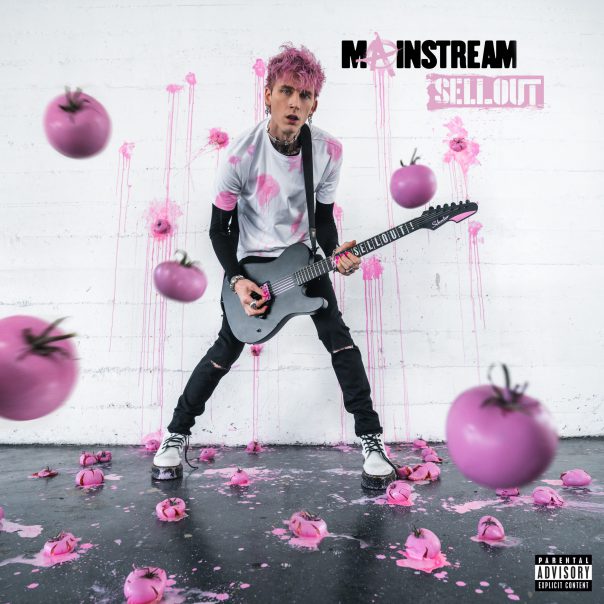REVIEW: Machine Gun Kelly rides the pop-punk wave on ‘Mainstream Sellout’
Machine Gun Kelly, “mainstream sellout.”
There’s very little room for sitting on the fence when it comes to rapper-turned-pop-punk rocker Colson Baker, better known as Machine Gun Kelly. MGK is either a punchline or a hero, depending on where you sit. But to his credit, he has a self-awareness of his lightning rod status and uses that to further his persona. Riding the wave of the pop-punk revival, Kelly’s mainstream sellout taps into the energy and urgency that make the genre what it is. On his latest effort, MGK recruits plenty of friends along the way to help him make his point.
Mainstream Sellout
Machine Gun Kelly
Bad Boy, March 25
7/10
For those familiar with the genre, there won’t be too many surprises here, but that doesn’t mean the material isn’t effective. Album opener “born with horns” launches with what sounds to be a pop-punk track in reverse before Kelly’s deep and raspy vocals enter. The dynamic track takes on a few personas. It first sounds like melodic blink-182, shifts toward an atmospheric acoustic breakdown, then back to a more aggressive styling closer to Sum 41. “In this film I know there’s no happy endings,” Machine Gun Kelly sings.
“God save me” touches on depression and a mental health crisis, with Kelly singing with an earnest honesty. The jumpy, urgent and anthemic “maybe” recruits U.K. hard rockers Bring Me the Horizon. MGK and BMTH frontman Oli Sykes trade verses on the memorable track, though the echoes of Paramore’s “Careful” and “Misery Business” ring loudly.
Machine Gun Kelly teams up with rapper Lil Wayne, who’s experimented in the rock world before, on “drug dealer.” It’s a different take on a love song; the interest here is in one’s drug dealer. Kelly tackles his detractors on the title track, singing of those who spoke out (and continue to speak) against him. In some ways, Kelly has become a Nickelback-like figure for Gen Z. Some laugh at him, yet he’s got massive success through accessibility and memorable songs.
Blackbear, another artist who’s been finding plenty of success with cameos in pop-punk songs, on laidback rocker “make up sex.” WILLOW joins the party on “emo girl,” a punk rock love song and updated take of sorts on “Sk8r Boi.” The two vocalists play off of each other well; the song is fun, catchy and one of the better moments on the record. The riffs continue on straightforward rocker “5150,” with an anthemic call and response chorus. “Papercuts” doesn’t quite qualify as a ballad, but the mid-tempo rocker even includes a rare rap verse by Kelly over the choppy guitar riffs.
“WW4” aims for the roots of pop-punk as a high-voltage riff-heavy track that clocks in at just over one minute. The aggressive rocker makes its point in a short time, making for one of the heavier moments on the record. Lil Wayne reprises his role as Kelly’s costar on “ay!” This song breaks the pop-punk mold with a style more in pop and hip-hop. The detour is fleeting, however, as the bouncy punk returns for “fake love don’t last,” along with some help from Iann Diorr.
“Die in california” mixes pop-punk with hip-hop and cameos by Gunna, Young Thug, Travis Barker’s son Landon and others. The album then closes on the introspective “sid & nancy” and surprisingly effective acoustic ballad “twin flame.”
Machine Gun Kelly isn’t reinventing the wheel by any means, and Mainstream Sellout often calls back to songs and bands that have already done this better. At the same time, he’s introducing pop-punk to a generation that didn’t grow up with it, and delivers it in a mostly convincing way. The latest album won’t make any converts, but is still effective in its mission.
Follow writer Mike DeWald at Twitter.com/mike_dewald.

